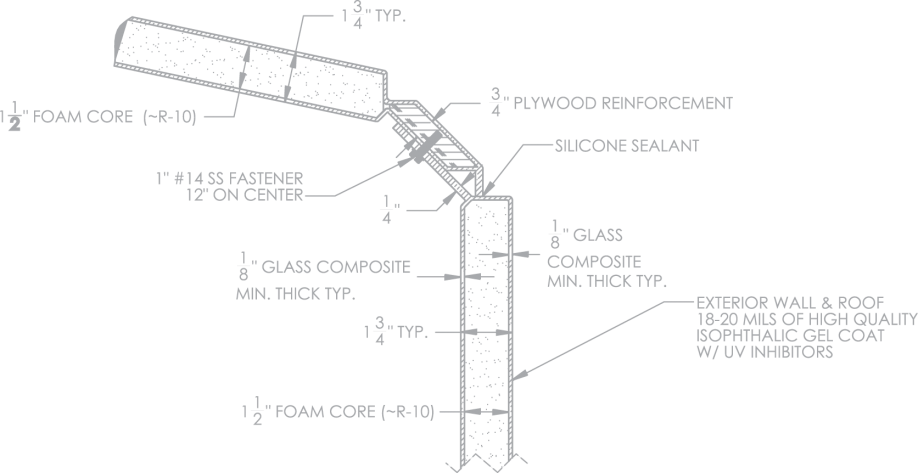Composites: The Key to Modern, Sustainable Construction
Composites: The Key to Modern, Sustainable Construction
Blog Article
From Waste to Marvel: How Recycled Composites Are Changing Various Applications
As sectors worldwide are significantly focusing on sustainability and environmental responsibility, the utilization of recycled composites has emerged as a transformative service across various sectors. From improving the efficiency of automobile components to offering sustainable choices in building materials, the applications of recycled composites are promising and substantial.
The Surge of Recycled Composites
The boosting adoption of recycled compounds in numerous markets shows an expanding acknowledgment of their ecological and economic advantages. Recycled composites, acquired from products such as reclaimed carbon fiber or recycled plastics, supply a lasting option to conventional products without jeopardizing on performance. Industries varying from automobile and construction to aerospace and customer goods are significantly turning to recycled compounds to satisfy their manufacturing requirements.
One key motorist behind the increase of recycled compounds is the push in the direction of sustainability and eco-friendliness. Business are under raising pressure to lower their carbon footprint and decrease waste generation. Recycled composites supply a solution by making use of materials that would certainly otherwise wind up in landfills, consequently promoting a circular economic climate.
Moreover, the economic benefits of using recycled composites can not be overlooked. These products are typically a lot more affordable than their virgin equivalents, supplying companies a method to lower production expenses without compromising top quality. As developments in reusing modern technologies continue to improve, the adoption of recycled compounds is expected to additional boost throughout diverse markets.
Benefits in Automotive Sector

Sustainable Solutions in Building And Construction
Incorporating sustainable methods in construction jobs is essential for lessening ecological impact and advertising lasting practicality in the developed setting. With the construction market being just one of the biggest factors to carbon emissions and waste generation internationally, the fostering of sustainable options is essential in reducing these unfavorable impacts. Recycled composites are playing a considerable function in reinventing building techniques by using a much more environment-friendly choice to conventional building materials.
Recycled compounds, acquired from products such as recovered rubber, plastic, and timber, give a lasting choice for different building applications. These materials not only help in reducing waste yet additionally use versatility, strength, and longevity equivalent to standard construction products. By integrating recycled composites right into building designs, building and construction jobs can add to source conservation and power performance while maintaining high efficiency standards.
In addition, making use of recycled compounds in building aligns with the expanding need for green structures and sustainable framework. As environmental policies come to be stricter and the concentrate on sustainability escalates, the building sector is increasingly turning to recycled compounds as a practical remedy for producing eco-conscious structures and structures.
Eco-Friendly Innovations in Product Packaging
Revolutionizing the world of sustainable packaging options, environmentally friendly technologies are paving the method for ecologically aware techniques in the product packaging sector. In response to the global phone call for minimizing plastic waste and decreasing carbon impacts, firms are significantly transforming to eco-friendly packaging alternatives. Biodegradable materials such as mushroom packaging, seaweed-based films, and compostable plastics offer promising solutions to the plastic air pollution situation. These cutting-edge products not just disintegrate normally, minimizing environmental effect, however also offer comparable functionality and resilience to traditional packaging alternatives.
Moreover, innovations in innovation have brought about the advancement of smart product packaging options that extend item shelf life and reduce food waste. Time-temperature indications, oxygen scavengers, and antimicrobial packaging aid preserve product quality and quality, making certain a longer rack life without the requirement for harmful chemicals. Additionally, the assimilation of recycled products right into packaging manufacturing processes additionally enhances sustainability initiatives. By incorporating post-consumer recycled material, firms can decrease the need for virgin materials, preserve natural deposits, and promote a round economy in the product packaging market. These eco-friendly technologies in packaging not just benefit the atmosphere yet also resonate with customers that are increasingly seeking lasting products.
Changing Textiles With Recycled Composites
In the realm of lasting products, the focus currently shifts in the direction of transforming fabrics with the innovative use recycled composites. This advancement in textile manufacturing is driven by the pressing demand for more eco-friendly methods in the style and textile sectors. Recycled composites supply an appealing remedy by integrating products like plastics, carbon fiber, and glass fiber More hints to create sturdy and versatile textiles.
Among the essential benefits of using recycled compounds in textiles is the capability to repurpose waste products that would otherwise finish up in landfills. By integrating recycled components into fabrics, makers can lower their environmental effect and add to an extra circular economic climate - composites. In addition, fabrics made from recycled why not find out more composites typically show boosted strength, toughness, and efficiency characteristics, making them excellent for a wide variety of applications
As customer need for sustainable products remains to increase, the fostering of recycled compounds in fabrics is positioned to grow considerably. This change in the direction of even more eco pleasant fabric manufacturing not only benefits the world however additionally opens brand-new opportunities for innovation and creativity in the fashion and textile markets.
Conclusion

From enhancing the efficiency of automobile parts to providing lasting options in construction products, the applications of recycled compounds are promising and huge. Recycled composites, derived from materials such as recovered carbon fiber or recycled plastics, offer a lasting alternative to traditional products without compromising on efficiency. Furthermore, the use of recycled compounds promotes the round economy by drawing away waste from landfills and lowering the requirement for virgin raw materials - composites.Recycled composites, acquired from get redirected here materials such as reclaimed rubber, timber, and plastic, supply a sustainable alternative for various building and construction applications.In the realm of lasting materials, the emphasis now shifts in the direction of changing fabrics with the innovative use of recycled compounds
Report this page